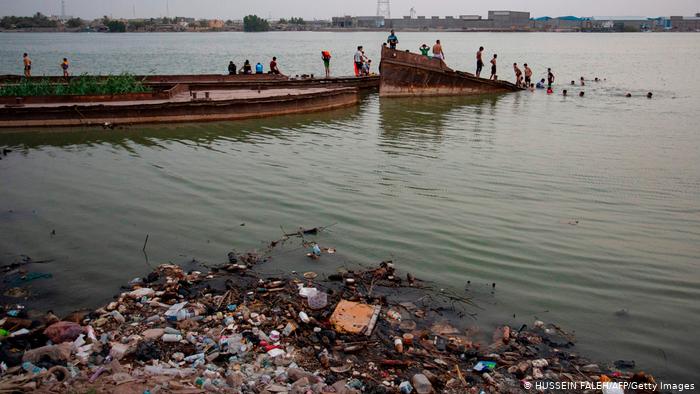An international consortium of scientists is cautioning against overemphasis on plastic removal technologies (PRTs) as a solution to the global plastic pollution crisis. The experts advocate for a shift in focus towards prevention rather than symptom management.
In a research review titled "Moving from Symptom Management to Upstream Plastics Prevention: The Fallacy of Plastic Cleanup Technology," published in the journal One Earth, the scientists assert that the costs of leaving plastic pollution untreated should be openly evaluated against the expenses of PRT initiatives. They propose that these evaluation criteria be incorporated into the forthcoming Plastics Treaty.
The scientists express concerns regarding various aspects of PRTs, including technological challenges, environmental impacts, issues of equity and justice, verifiability, market-driven "greenwashing," and the potential to divert attention from more effective solutions. Verifiability, in particular, pertains to the scientific validation of PRT performance.
The review underscores that while PRTs may be essential in specific localised situations, such as heavily polluted areas, they should not be enshrined in global policies like the Plastics Treaty, especially for purposes like plastics offsetting. The scientists argue that the net benefits of PRTs have not been proven to outweigh their environmental and economic impacts on a global scale.
"While PRTs could be necessary in some local cases, such as heavily polluted harbours, beaches, and rivers, in a global context, PRTs should not be enshrined in a treaty for purposes such as plastics offsetting. There is no evidence that the net benefits of PRTs outweigh their environmental and economic impacts outside highly polluted areas."
The literature review explores the feasibility and scalability of PRTs, assessing ecological impacts along with ethical, political, and economic considerations. The authors stress that priorities in the Plastics Treaty should be on toxic-free, zero-waste measures, concentrating on prevention and reduction rather than cleanup efforts.
"For necessary removal efforts, a science-based accreditation system should be in place to verify the effectiveness of PRTs and minimize regrettable outcomes."
The ongoing third meeting of the Intergovernmental Negotiating Committee on plastic pollution, at the UN Environment Programme (UNEP) Headquarters in Nairobi, Kenya, from 13 to 19 November aims to develop a United Nations Treaty on Plastic Pollution. The treaty seeks to establish an international legally binding instrument addressing plastic pollution, including in marine environments.
Despite discussions promoting sustainable consumption and production of plastics at the meeting, the scientists argue for a more effective approach: curbing the demand for plastics rather than addressing the problems they cause.
Highlighting projections of a tripling in plastic production by 2060, the scientists emphasise that plastics and chemical pollutants are already surpassing safe limits, posing threats to climate, biodiversity, human health, and ecosystems. The call to action includes recommendations for independent scientific evaluations of PRTs and emphasises the need for a global legally binding approach grounded in the zero-waste hierarchy.
"Further, in light of the triple planetary crisis (climate change, biodiversity loss, and pollution), claims that PRTs are a safe and sustainable solution to the global plastics crisis require independent scientific evaluation based on rigorous and globally standardised EIA criteria, including climate costs, human health, rights, equity and justice, chemical emissions, organism mortality, and biodiversity loss."
The scientists conclude by urging member states to draw inspiration from successful multilateral environmental agreements that focused on prevention, such as those addressing chlorofluorocarbons, air pollution, and oil residues from ships at sea. They suggest that such precedents can guide negotiations toward an effective and comprehensive Plastics Treaty.
"The most effective measures will be grounded in global legally binding action, underpinned by the zero-waste hierarchy, to effectively eliminate plastic pollution throughout the full life cycle. Because of the uncertainties around PRT impacts, scalability, efficiency, and associated costs, they rank low on the zero-waste hierarchy as a temporary crutch to reduce existing plastics in pollution hotspots. However, to prevent undesirable outcomes, standardised, science-based assessment criteria must be independently established to evaluate the impact of PRTs on human health, the economy, and the environment."
"Successful historical precedents for the future Plastics Treaty can be found in multilateral environmental agreements (MEAs) focused on prevention rather than mitigation of chlorofluorocarbons, air pollution, and the release of oil residues from ships at sea. Member states would do well to look to those successful MEAs to guide negotiations toward an effective and comprehensive Plastics Treaty."
Latest Stories
-
Elon Musk in China to discuss enabling full self driving – reports
3 mins -
Foreign Affairs Ministry advises against travelling to Northern Mali
17 mins -
After dating him for three years, I proposed to my husband
20 mins -
Beatrice ‘Bee’ Arthur tackles plastic pollution through artistic exploration
58 mins -
Hundreds turn out for Luv FM/Telecel Fitness Walk in Kumasi
1 hour -
Ghana Post launches Asantehene Commemorative Stamp
1 hour -
Police fire tear gas to disperse Benin wage protest
1 hour -
Airline keeps mistaking 101-year-old woman for baby
1 hour -
Harvey Weinstein hospitalised after conviction overturned
1 hour -
Anis Hafar: Learning how to avoid wars
1 hour -
Private legal practitioner wins Akan NPP parliamentary candidate poll
2 hours -
American-Israeli hostage appears in Hamas video for first time
2 hours -
Samson’s Take: Arrogance of Power, Shameful Policing
9 hours -
Burnley score late to draw with Manchester United at Old Trafford
11 hours -
Bayer Leverkusen extend unbeaten run to 46 games after draw with Stuttgart
11 hours

